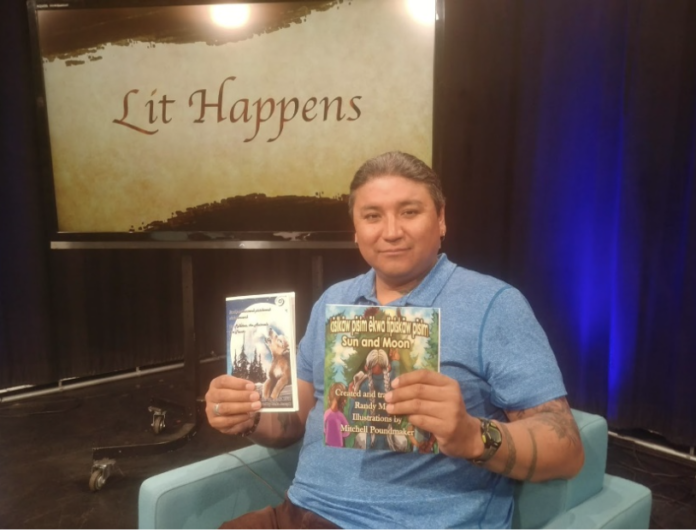
An Indigenous storyteller from Big River First Nation said he’s blessed to be continuing his role during Aboriginal Storyteller Month.
Randy Morin, who is also an assistant professor at University of Saskatchewan Indigenous Studies, will be fulfilling the storytelling role at the province-wide event beginning on Feb. 1.
Wapiti Regional Library is taking part in the event and will be releasing a series of pre-recorded videos of Morin sharing stories. The library will also host a live puppetry show based on traditional Anishinabek’s teachings for children via Zoom.
Morin said his role will be challenging this year with the pandemic forcing the event to go virtual.
“I won’t be able to connect with the youth, because I do involve them in my stories,” Morin said.
He added that a benefit to the virtual event is that his stories will reach more people.
Morin said storytelling is a way to connect people to the values such as sharing, love, family and relationships. Storytelling also teaches people sacred law, and introduces many characters.
“It’s the way that we share information, we share who we are, where we come from, our connections to the land,” Morin explained.
Morin added that stories have been passed down from generation-to-generation over hundreds of years and help develop imagination and creativity among youth.
There are many stories to tell, such as stories about shapeshifting and time travel.
Morin worries that today’s youth are distracted by technology and devices, and that there’s “no connection going on.”
Morin added that’s not the case for youth who listen to stories.
“With these old stories if they listen they can actually visualize and imagine what is happening and how they can apply it in their lives to heal, to get better, to do better to learn from the mistakes that they hear,” Morin explained.
As ancestors, elders, and knowledge-keepers pass away, Morin said their stories need to be captured. He encourages youth to visit their elders once it’s safe to do so to learn from them and their stories.
Language is important as well. Morin has to translate his stories when he shares them but he says they would be more descriptive and “much funnier” in Cree.
Morin advocates for others, especially men, to share their stories. He says stories have the power to heal.
“(Men) don’t share their emotions. They’re afraid to be vulnerable. They’re afraid to open up their hearts, they bottle everything up and they close off,” Morin said.
This is the result of high incarceration rates of Indigenous people, according to Morin.
He said he plans to share his story of healing.
“If one person can listen and take away from what I’ve shared, then I’ve done my job.”
For Aboriginal Storytelling Month, Morin plans to share stories about Treaty 6 land. He said people need to hear these stories so that history does not repeat itself.
“That’s the point of education. If you learn from the past, we do not repeat what has been done in the past,” Morin explained.
He also plans to share supernatural and humorous stories.
Morin is writing two books right now, including a biography consisting of short stories and his third children’s book.
Morin encourages others to share their personal stories.
“Everyone carries a story and I challenge everybody to share their stories. Everyone is a storyteller.”
Wapiti Library Community Services Librarian Lindsay Baker said Indigenous storytelling traditionally takes place in the wintertime.
A report by the Minister’s Advisory Committee on Library Services for Aboriginal People titled Information is for Everyone found that there was a need for libraries to better represent and feature Indigenous storytellers, Baker explained.
“This is one way which libraries are able to do so annually and we think it’s really important,” Baker said.
Aboriginal Storytelling Month will be shared on Wapiti Library’s YouTube Channel, and their social media accounts. For more information, visit https://wapitilibrary.ca/.

